Place your adverts here on InfoDig @ low rates; banner ads, sponsored links and guest articles etc. Contact us

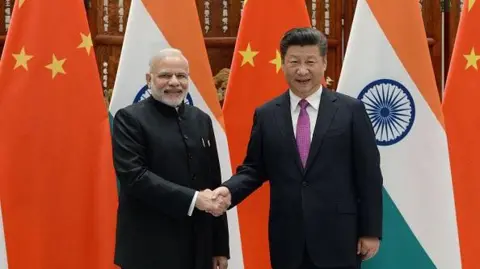 Getty Images
Getty Images
Ties between India and China have been strained since the 2020 clashes along a disputed border
India and China have agreed on patrolling arrangements to de-escalate tensions along their disputed Himalayan border, India’s top diplomat has said.
Vikram Misri said on Monday that the two sides have agreed on “disengagement and resolution of issues in these [border] areas that had arisen in 2020”.
He was referring to the Galwan Valley clashes in which both sides suffered casualties - the first fatal confrontation between the two sides since 1975.
Relations between the neighbours have been strained since then.
“An agreement has been arrived at on patrolling arrangements along the Line of Actual Control (LAC) in the India-China border areas, leading to disengagement and a resolution of the issues that had arisen in these areas in 2020,” Mr Misri said.
Mr Misri, however, did not give any details about the disengagement process and whether it would cover all points of conflict along the disputed border.
The Indian foreign secretary's statement comes just a day before Indian Prime Minister Narendra Modi travels to Russia for a meeting of Brics nations which includes Brazil, Russia, India, China and South Africa.
Mr Misri didn’t confirm if a bilateral meeting between Mr Modi and Chinese President Xi Jinping was on the agenda.

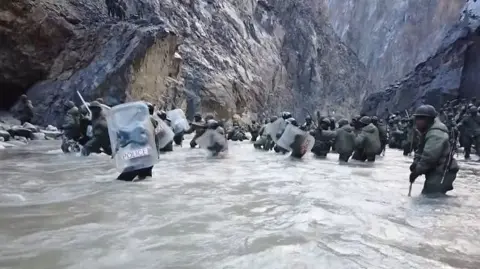 Getty Images
Getty Images
The Galwan clashes were the first fatal confrontation between the two sides since 1975
His remarks on Monday mark a major development between the two nuclear-armed nations since the Galwan clashes
Troops in the Galwan Valley fought with clubs and sticks because of 1996 agreement between the two countries that prohibited the use of guns and explosives near the border.
Several rounds of talks between their diplomats and military leaders in the last four years had not resulted in a major breakthrough.
- India-China clash: An extraordinary escalation 'with rocks and clubs'
- China says Indian troops fired 'provocative' shots in border dispute
Troops from the two sides clashed in the northern Sikkim area in 2021 and again in the Tawang sector of the border in 2022.
Border tensions have cast a long shadow on India-China relations for decades. The two countries fought a war in 1962 in which India suffered a heavy defeat.
Business relations between the two Asian giants have also suffered due to the tensions.
The root cause is an ill-defined, 3,440km (2,100-mile)-long disputed border. Rivers, lakes and snowcaps along the frontier mean the line often shifts, bringing soldiers face to face at many points, sparking a confrontation.
The two nations have been also competing to build infrastructure along the border, which has sparked further tensions.
Follow BBC News India on Instagram, YouTube, Twitter, and Facebook.

 4 hours ago
30
4 hours ago
30
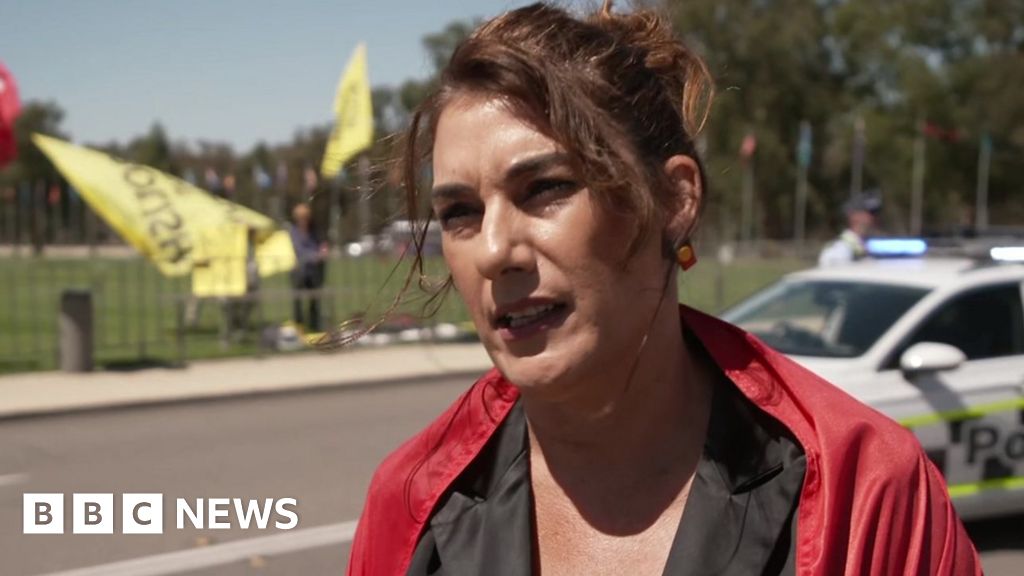

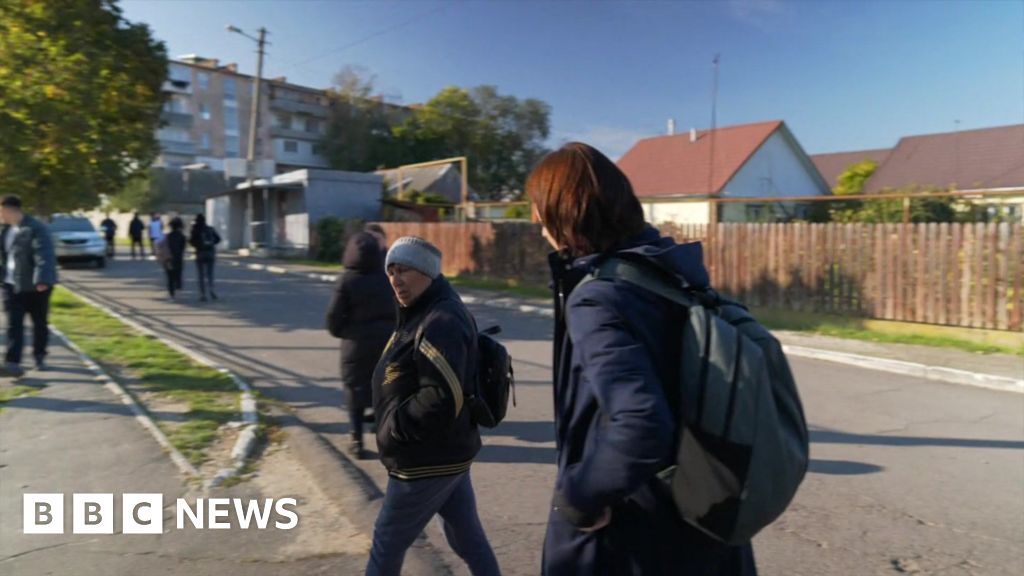

)
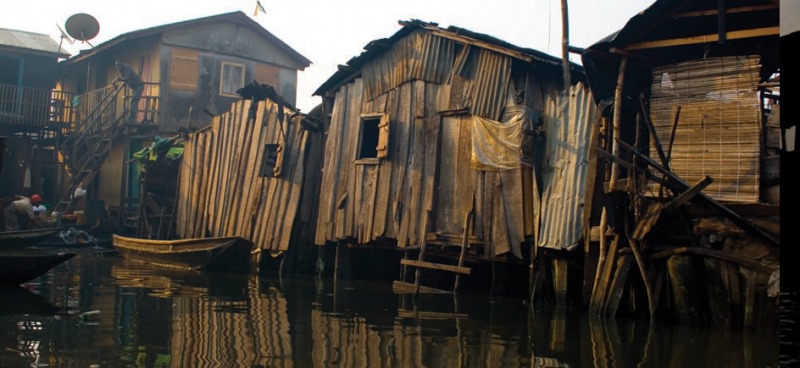




)

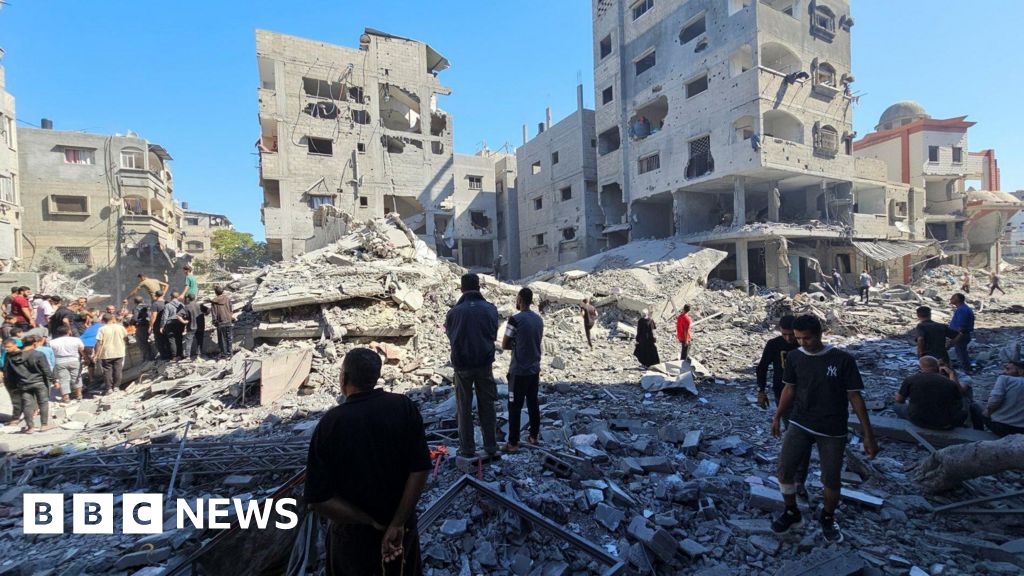
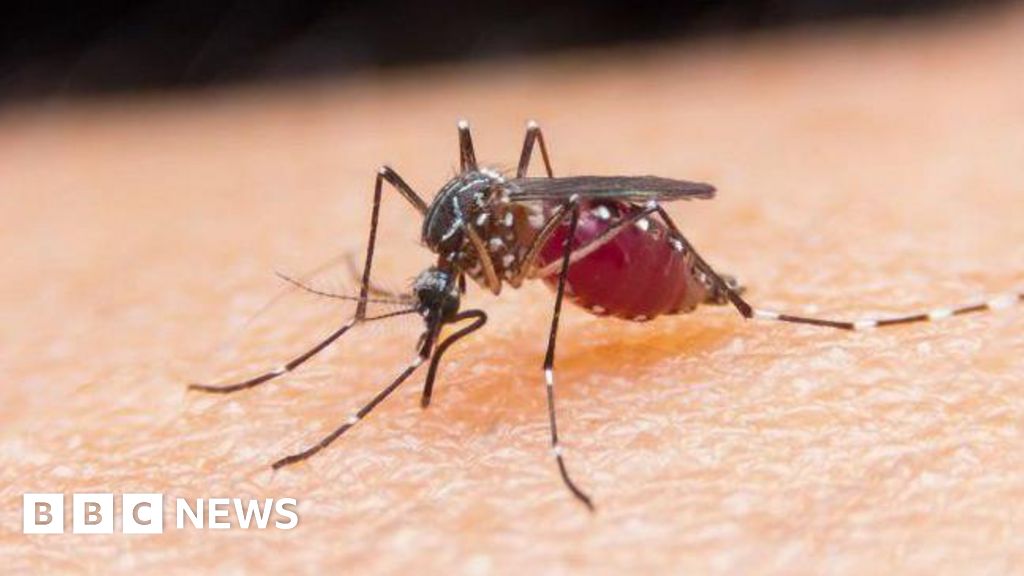
 English (US) ·
English (US) ·